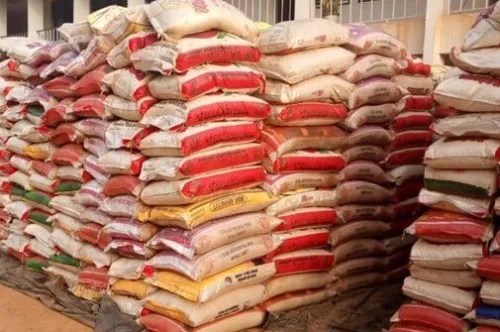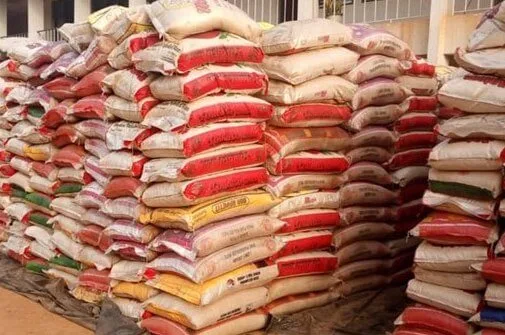
Samuel Okudzeto Ablakwa, the Member of Parliament for North Tongu, has made serious allegations regarding the distribution of expired rice to Senior High Schools (SHSs) across Ghana. According to Ablakwa, a total of 22,000 bags of rice, which had expired and been repackaged, were distributed to schools through the Free Senior High School (Free SHS) Secretariat in February of this year.
Samuel Okudzeto Ablakwa, Member of Parliament for North Tongu and head of the Assurances Committee in Parliament, has revealed troubling details about a scheme to distribute expired rice to Senior High Schools (SHSs) in Ghana. In a recent interview on Joy FM’s Midday News, Ablakwa shared the findings of his personal investigation into the issue, which he claims was a deliberate and orchestrated effort.
Ablakwa alleges that the National Food Buffer Stock Company, in collusion with Lamens Investments Africa Limited, used the Buffer Stock’s storage facility in Kumasi, Ashanti Region, to repackage expired rice. The rice, imported from India under the brand name ‘Moshosho Rice,’ had expired in December 2023. According to Ablakwa, after realizing the rice had passed its expiry date, the companies involved conspired to repackage the rice using the Buffer Stock’s facility. This repackaged rice was then put into locally made sacks labeled ‘ECOWAS’ and ‘Made in Ghana Rice,’ but without any expiry date, misleading authorities and consumers about its condition.
The MP further explained that after the rice was repackaged, a tip-off led the Ashanti Regional Police and the Food and Drugs Authority (FDA) to intercept the consignment for investigation. However, despite the rice being identified as contaminated, it was ultimately cleared for distribution to SHSs before the FDA’s final test results were received in February. Ablakwa expressed disbelief, stating that even though the rice was found to be expired and unsafe, an order came from higher authorities to distribute all 22,000 bags of rice to schools.
Additionally, Ablakwa claimed that around 10,000 bags of the same expired rice were stored in a bonded warehouse in Tema at a facility called Lynbrok. He went on to explain that after the case was exposed, an investigation was initially started, but it was later dropped when Lamens Investments offered to pay a compensation of GH₵100,000. Ablakwa criticized this offer, arguing that it was insufficient considering the potential harm to thousands of students’ health.
The MP also noted that the company had admitted to its wrongdoing and agreed to pay a fine of GH₵100,000, but only half of the fine had been paid, and the company was now untraceable. He cited the FDA’s test results, which revealed that the rice was contaminated with insects and had a dangerously high acidity level, confirming that it should have been destroyed rather than distributed.
Ablakwa is now calling for a thorough investigation into the matter, demanding that those responsible be prosecuted for putting the health of students at risk. He emphasized that the perpetrators must be held accountable to prevent such incidents from
recurring.









